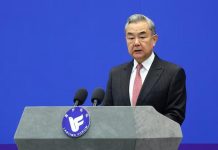Africa-Press – Mozambique. The World Bank has improved its assessment of Mozambique’s ability to effectively use external financial aid by 0.1 points, considering its national policies and institutions, slightly above the average for sub-Saharan Africa.
“The increased score reflects improved debt policy and management due to reforms to enhance the regulatory framework, strengthen management in state-owned enterprises, and improve fiscal risk management” the institution argues in the annual report analysing whether the institutional and policy environment is conducive to the effectiveness of development aid, to which Lusa had access on Wednesday.
The ‘ Country Policy and Institutional Assessment (CPIA) for Africa’, which is the responsibility of the International Development Association (IDA), the World Bank’s arm for concessional financing for the poorest countries, says that, in Mozambique, “progress was made on social inclusion and equity through better gender equality and building human resources in health and education. “.
The economists emphasise that “efforts are needed for financial sector development, ensuring financial stability and continued adherence to international accounting practices”.
In the report, which improves Mozambique’s score from 3.1 to 3.2 points, placing the country slightly above the average of 3.1 points in sub-Saharan Africa, they also argue that “efforts to enhance governance, particularly in property rights and rule-based governance, and address transparency and accountability concerns are essential for improving overall performance”.
In this year’s edition, which covers 2022, the World Bank improved the score of 12 African countries, maintaining 20 and reducing eight, and emphasises that “despite global economic challenges, more countries in Sub-Saharan Africa saw improvements in their overall CPIA scores compared to the previous year”.
“The overall score increased for four countries in Eastern and Southern Africa (AFE)—Burundi, the Democratic Republic of Congo, Mozambique, and Zambia. In contrast, the overall score decreased for eight countries—Chad, the Comoros, Eritrea, Ethiopia, Ghana, Malawi, São Tomé and Príncipe, and Sudan,” the CPIA Africa 2023 report reads.
“The countries with improved scores made notable advancements in the economic management, policies for social inclusion, and governance clusters,” adds the report.” Conversely, the countries with declining scores faced economic management and governance challenges. For the most part, the countries that received downgrades were positioned toward the lower end of the scale, while the upgraded countries generally had overall scores above 3, indicating a growing divergence in scores across the region in 2022′′.
This institutional assessment of countries and policies is carried out annually by the World Bank, using four main lines of assessment (economic management, structural policies, policies for social inclusion/equity, and public sector management and institutions) and 16 criteria.
The 12 countries that improved their rating include Cabo Verde, Guinea-Bissau and Mozambique, with São Tomé and Príncipe being one of the eight countries whose rating worsened, and 20 maintained their level, out of a total of 39 countries analysed in sub-Saharan Africa, on an ascending scale of 1 to 6.
Angola and Equatorial Guinea, the other two Portuguese-speaking African countries, are excluded from this assessment, as they are not considered by the World Bank to be poor countries, given their level of per capita income.
The annual IDA report “captures the quality of a country’s policies and institutional arrangements. Its focus is on elements within the country’s control rather than outcomes influenced by outside elements”, which means that the scores “assess whether sustainable growth and poverty reduction can be supported through existing policy and institutional arrangements”.
“As the scores represent the capacity for effective use of development assistance, they are one of the main factors determining a country’s allocation of development financing from the International Development Association. ,” the report goes on to explain, noting that “the average overall CPIA score for Sub-Saharan Africa remained unchanged at 3.1 in 20222”.
For More News And Analysis About Mozambique Follow Africa-Press






